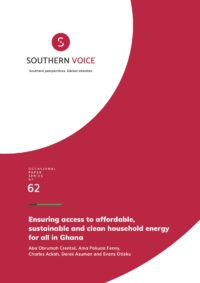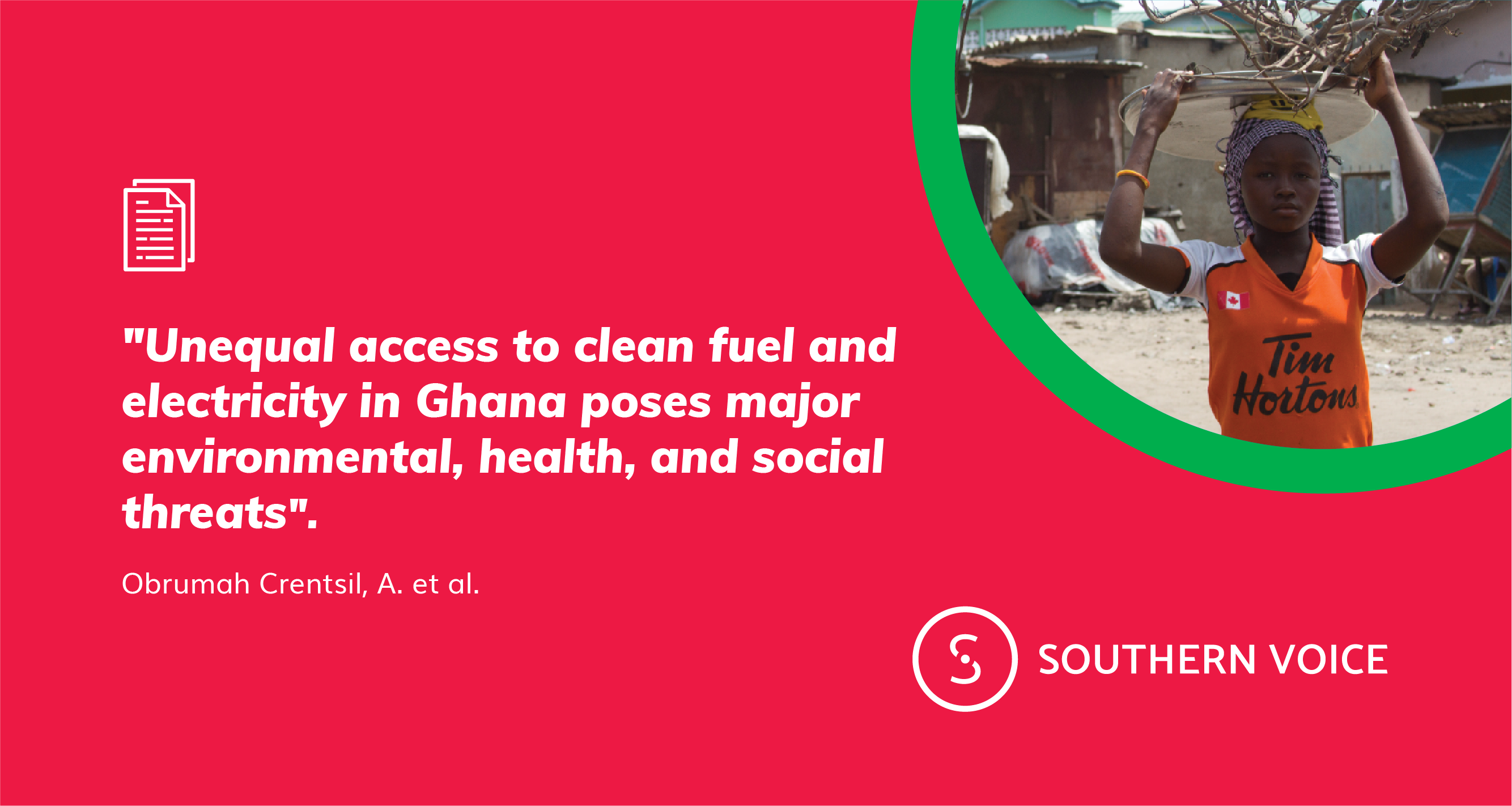 This study investigates household access to affordable energy in Ghana, assessing which groups are left behind. It considers synergies and trade-offs between other SDGs that affect equitable energy access, and how global issues affect the national implementation of SDG 7 (affordable and clean energy).
This study investigates household access to affordable energy in Ghana, assessing which groups are left behind. It considers synergies and trade-offs between other SDGs that affect equitable energy access, and how global issues affect the national implementation of SDG 7 (affordable and clean energy).
Combining quantitative and qualitative approaches to appraise access to different energy types, this paper employs a decision tree analysis to map the interplay of geographical location (urban or rural residence) and household poverty status. It illustrates that the use of clean fuels in Ghana, including electricity, is limited by both accessibility and affordability. Results from a scenario-based analysis show trade-off between SDG 7 and SDGs 2 (zero hunger), 3 (good health and well-being), 5 (gender equality), 11 (sustainable cities and communities), and 13 (climate action).
Using a transmission mechanism and causal loop analysis, this study considers how interactions between global and national issues shape access to clean energy in Ghana. Regional cooperation through research, knowledge transfer, and partnerships, can help narrow access inequalities in household energy access, if adequately funded and equitably implemented.


